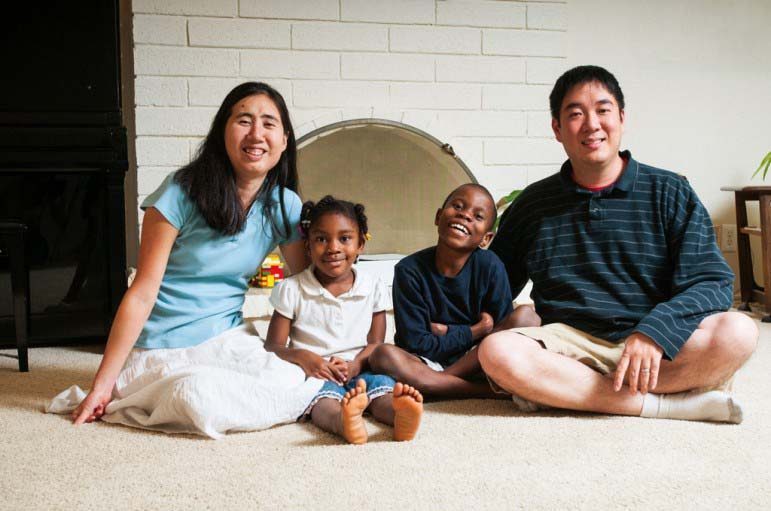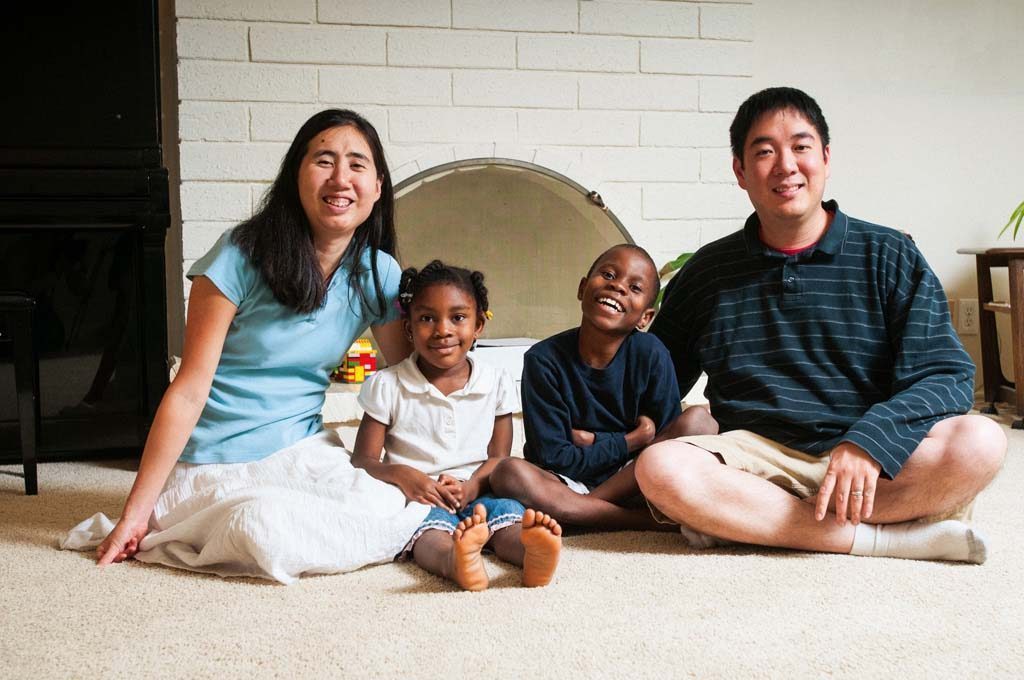
The appeal process for an American couple convicted after their daughter’s death resumed in a Doha courtroom on Monday, with a judge questioning why the eight-year-old was sometimes locked in her bedroom at night.
Matthew and Grace Huang were sentenced to three years in prison earlier this year for parental neglect following the January 2013 death of their adopted daughter, Gloria.
The Huangs told police that the child had refused to eat for four days leading up to her death, but witnesses also testified that she was seen smiling and walking around before she died.
Their lawyer, Sami Abu Shaikha, is asking for the conviction to be thrown out while prosecutors are pressing for a harsher sentence. A judge has merged both appeals into a single case.
On Monday, a prosecutor laid out the same narrative presented in the lower court: that the Huangs starved Gloria to death, kept her locked in her room and neglected to seek medical help for their ill daughter.
Abu Shaikha responded by telling the court that there was no evidence Gloria was starved to death by her parents. His argument is backed by the findings of the lower court, which concluded in its ruling that Gloria was not denied food.
However, a judge in that court said that Matthew and Grace Huang should serve jail time for exposing their daughter to danger after she refused to eat and for failing to provide the necessary treatment.
Confinement question
As Abu Shaikha read from his prepared statement, he was interrupted by a judge’s question: Why was Gloria locked inside of her bedroom on some nights?
Abu Shaikha paused and flipped through his stack of papers before answering. He responded that because Gloria’s biological parents in Ghana didn’t always have enough food to feed their family, Gloria and her siblings would be forced to rummage through garbage to find something to eat.
He reiterated what was said during the previous trial – that Gloria suffered an eating disorder from growing up in extreme poverty, which caused her to binge on food and refuse it for several days.
Abu Shaikha added that Gloria became “addicted” to the practice, much like a drug – a comparison that elicited laughter from one of the judges – and that her parents restricted her movements at night in an attempt to rid her of the habit.
Specifically, he said they would “lock her up” between 8pm and 6am so she wouldn’t have access to food.
“Like any addict, she needed treatment. And that was the treatment,” he said in Arabic.
Doctor’s visits
After addressing the judge’s question, Abu Shaikha returned to reading his prepared remarks and rebutted the argument that the Huangs failed to provide the necessary medical care for Gloria.
The parents brought Gloria and her two brothers, who were also adopted, for annual check-ups with doctors in the United States. As recently as June 2012 – roughly seven months before she died – the young girl had been deemed physically sound by a physician and cleared to travel, according to the defense lawyer.
The family followed a pattern of regular doctor appointments and had no reason to rush Gloria in for emergency treatment, he added.
Matthew Huang previously offered his own explanation in a video appeal to supporters:
“We did not take Gloria to the hospital when she was refusing to eat because we believed she would come out of these hunger strikes as she had done before. She was lively and active and there was no reason to suspect any concern for her health.”
Travel ban maintained
Matthew and Grace Huang both attended Monday’s hearing, but were not assisted by a translator in court, where sessions are conducted almost entirely in Arabic.
The couple remains out of prison, but cannot leave Qatar because of a travel ban – a restriction that was not enforced on several of those convicted in the Villaggio manslaughter case, which is also currently before the Court of Appeals.
The next hearing in the Huangs case is set for Oct. 20, during which the court will hear from a forensic doctor who examined Gloria’s body after she died in January 2013.
Grace Huang, whose two sons are currently in the care of relatives in the US, said she was shocked by the four-month gap in hearings. In a statement, she said:
“When you are innocent, these judicial delays are devastating. This travel ban is destroying our family and driving us into bankruptcy. Why is it that others convicted to worse sentences (than) ours are free to travel with no travel ban? This is discrimination. Qatar is not a safe place for Americans. Period.”
Thoughts?







